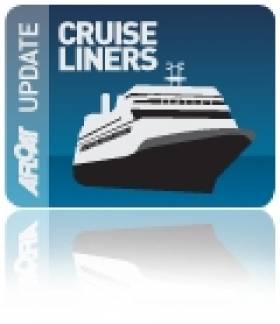Displaying items by tag: Royal Warrant
Cruising By Royal Appointment
#CRUISELINERS- She may be one of the smallest cruiseships operating, however Hebridean Princess (1964/2,112grt) which is to call to Dublin Port this evening, is big in terms of her status, writes Jehan Ashmore.
A plaque was unveiled on board in May to recognise that the ship has been granted a Royal Warrant by Queen Elizabeth II, as the Royal Family chartered the 5-star luxury vessel in Scottish waters in 2006 and 2010.
The warrant for the provision of cruise holidays came into effect at the start of this year and her owners Hebridean Island Cruises will be the only travel brand honoured in such a way.
The interiors are modelled on those of a large country mansion, where each of 30 cabin suites are individually decorated in opulent style. This is a far cry to her origins as a humble ferry. In that guise she ran as Columba, serving ferry operator Caledonian MacBrayne.
This evening she is set to pass through the East-Link toll-lift bridge, due to her smaller dimensions compared to larger cruiseships which have to dock elsewhere in the port. For example today also see 30,000 tonnes sisters Nautica and Azamara Journey dock in Ocean Pier at berths 33 and 37 respectively.
Hebridean Princess is to tie-up on Sir John Rogerson's Quay at berth 8 where she moored last year. In addition this berth was where another equally luxurious vessel the superyacht M.Y. Majestic, which as previously reported called to last weekend. The four-deck Caymen Islands registered vessel is currently on a visit to Dun Laoghaire Harbour.
























































